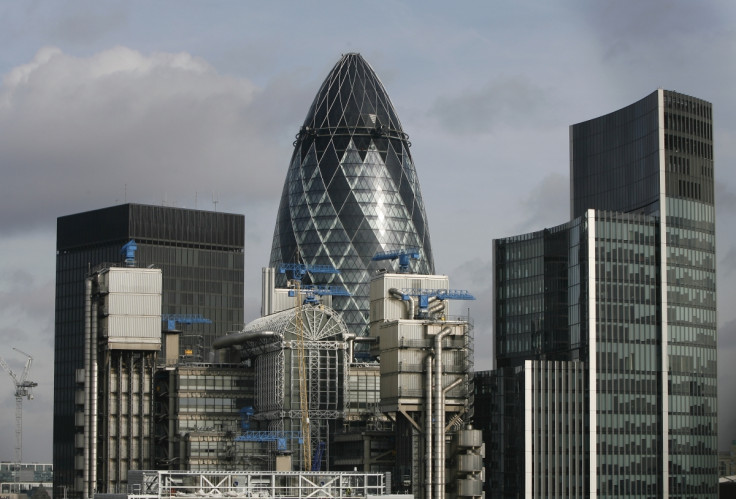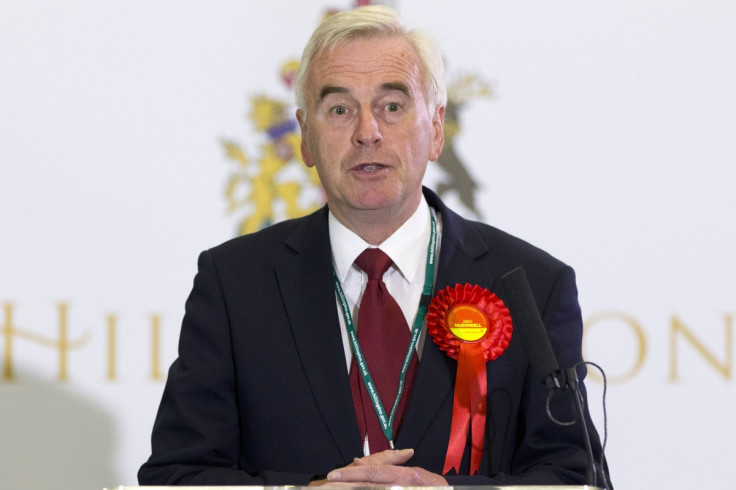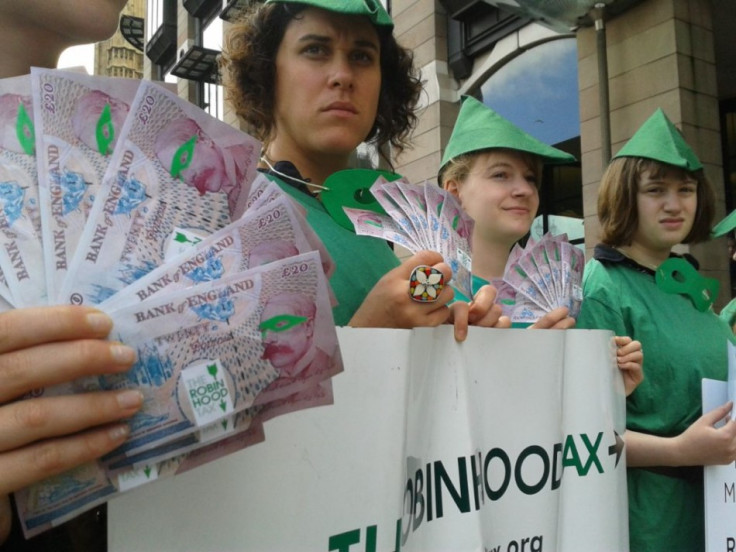What is the Robin Hood Tax and do you agree with John McDonnell that UK banks should pay more tax? [Poll]

Campaigners have long called for a "Robin Hood Tax" on the financial sector. And now they have been given renewed momentum as Labour's shadow chancellor, John McDonnell, puts it front and centre of his party's debate on taxation policy.
"Robin Hood Tax at the moment is Labour Party policy on the basis of if we can introduce it globally, and that's been Labour party policy for some time now," he told BBC News. "However, what we are saying is today we are going to launch a review of our taxation system, we are going to bring the greatest economic minds in the world to bear on that issue, we are going to consult with the British people and then we will arrive at a decision on the way forward."
So what is the Robin Hood Tax? It is a tax on financial transactions that takes place in the markets. That is why it is also known by another name: a Financial Transaction Tax (FTT).
The Robin Hood Tax campaign calls for a tax of around 0.05% on all transactions involving the likes of shares, bonds and currencies. So every time a share is traded, for example, a 0.05% tax would be applied to the value of that transaction. The campaign calculates that around £250bn could be raised a year if applied globally. In the UK specifically, it thinks £20bn a year can be raised for the Treasury from an FTT.
They say it's taxes like this that can help to close the deficits in public finances across the Western world rather than spending cuts under austerity programmes. This would protect the public services and welfare spending on which many people rely rather than making ordinary citizens pay the price of a financial and economic crisis they did not create. Hence its connection to Robin Hood – taking from the rich to give to the poor.

"The financial sector is responsible for a big part of the mess we're in," says the Robin Hood Tax campaign. "So our merry band of hundreds of thousands of Robin Hood supporters believe that banks, hedge funds and the rest of the sector should pay their fair share to clear up the mess they helped create."
The EU has already moved to introduce a FTT, though it met with opposition from some of its 28 member states -- including the UK. In fact, the UK Treasury unsuccessfully challenged the FTT in the European court. Its case was thrown out because the FTT had not yet come to fruition, leaving the door open for another challenge if, as expected, it is formally introduced in the 11 EU states that have agreed to it.
Under the EU proposals, shares and bonds transactions would be taxed at 0.1% and derivatives at 0.01%. The EU estimates this would generate revenues of €30bn to 35bn (£22bn to £26bn) a year. The UK's objection is that the FTT would infringe on UK sovereignty because it would be forced to collect the tax on behalf of other states. And it would disproportionately affect the UK because London is home to the largest financial sector in the world.
"Any Financial Transaction Tax threatens the City of London's pre-eminent position as a global financial centre," said Boris Johnson, the Mayor of London. That's a massive risk to our economy, and threatens the UK jobs market. Do we want business to abandon London and the UK in favour of Hong Kong, New York or Singapore? I don't. It's clear John McDonnell does and that would put people's livelihoods here at risk."
This also forms part of the broader argument against introducing a FTT in the UK: that it would make the financial sector less competitive globally, driving investment and jobs elsewhere, costing the Treasury money and weakening the economy. And while FTT proponents say it could keep a lid on speculative finance being adding to the costs associated with trading, it could also make markets less liquid, argue critics.

"Based on what we know of the FTT so far, there is a strong risk that this will hurt the market," said Christian Voigt, business solutions architect at Fidessa, to Banking Technology. "The tax will impact those who trade a lot, such as liquidity providers. Market makers are needed to provide liquidity to the market in times of stress – but the FTT will discourage them from doing so at the very moment when the market needs liquidity the most."
Using the European Commission's impact assessment of the FTT on the EU, libertarian think tank Adam Smith Institute calculates the 20-year cost to the UK economy because of lost growth to be £25.58bn. Moreover, critics of the FTT say it will hurt savers, in particular pensioners, because the costs of the tax will be passed on to them by the financial sector, though proponents of the tax insist it can be targeted at the wealthiest investors.
"Winston Churchill, once chancellor of the exchequer, argued: 'We contend that for a nation to tax itself into prosperity is like a man standing in a bucket and trying to lift himself up by the handle' and in the case of a Financial Transaction Tax it is easy to agree with him," said Russ Mould, investment director at AJ Bell.
"We must all remember that the tax will ultimately be paid out of our own pension funds and what are seemingly minor charges will compound up over time, eroding the value of everyone's savings pots and not just those of the already wealthy.
"In December 2012, Italy introduced levies on corporate bond, stock and derivative trades yet raised just €159m [£117m] of the targeted €1bn [£735m] in receipts during the FTT's first year as investors switched their attentions away from domestic equities and toward platforms, instruments and asset classes where the tax's impact was lowest."
So far, the UK has resisted introducing a new FTT. And even some of the tax's proponents are lukewarm to the policy if it is not applied globally to mitigate any knock-on effect to the UK financial sector. But the Robin Hood Tax campaign insists it can still be applied unilaterally without significant consequence.

"International agreement would be great, but it's not vital," says the campaign. "In Europe, countries are negotiating to reach consensus on introducing an FTT. But in the meantime, individual countries can act alone.
"The IMF has clearly stated that FTTs exist in all the major financial sectors already, without driving business away. The best example of this is the UK, where we have a stamp duty of 0.5% on all share transactions.
"The UK's major competitors do not have this and there certainly is no global agreement, yet it is a successful FTT that raises around £3bn each year. It is designed so it can't be avoided and London remains one of the biggest stock markets in the world."
In reality, for an FTT to be introduced in the UK, it would need the election of a Labour government. The current Conservative administration, in particular Chancellor George Osborne, has nailed its colours to the mast: no FTT here, thanks. We will have to wait until 2020 to see if a UK FTT will become a reality.
© Copyright IBTimes 2024. All rights reserved.






